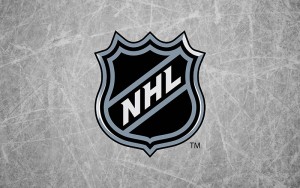“Quite frankly we don’t see what the benefit is from the game standpoint or the League standpoint with respect to Olympic participation.”- Deputy Commissioner Bill Daly
When all is said and done, the owners who write the checks have spoken.
Citing reasons such as risks surrounding player injuries and not waiting to shut down business for two weeks after football season has ended, the National Hockey League announced that it will not send players to the 2018 Winter Olympics in South Korea.
The NHL, NHLPA, IOC, and IIHF have been in talks for several months on the issue. The NHL had long said there would be a resolution to the issue prior to the start of the NHL playoffs and they made good on that promise 10 days before the playoffs are set to begin.
The NHL said in a statement:
“We have previously made clear that while the overwhelming majority of our clubs are adamantly opposed to disrupting the 2017-18 NHL season for purposes of accommodating Olympic participation by some NHL players, we were open to hearing from any of the other parties who might have an interest in the issue (e.g., the IOC, the IIHF, the NHLPA, etc.) as to reasons the Board of Governors might be interested in re-evaluating their strongly held views on the subject. A number of months have now passed and no meaningful dialogue has materialized. Instead, the IOC has now expressed the position that the NHL’s participation in Beijing in 2022 is conditioned on our participation in South Korea in 2018. And the NHLPA has now publicly confirmed that it has no interest or intention of engaging in any discussion that might make Olympic participation more attractive to the clubs. As a result, and in an effort to create clarity among conflicting reports and erroneous speculation, this will confirm our intention to proceed with finalizing our 2017-18 regular season schedule without any break to accommodate the Olympic Winter Games. We now consider the matter officially closed.”
The NHL had been working on two versions of the 2017-18 schedule before the announcement, one version with the Olympic break and one without.
Hockey fans who are for Olympic participation and against have equally valid arguments. As successful the North American-based Olympics were successful (both featured USA-Canada competing for gold in 2002 and 2010), the others weren’t so successful for creating the same post-Olympics public interest that other sports such as soccer, swimming and figure skating generate. In addition, several big-named players suffered injuries for the remainder of the regular season in Sochi including John Tavares, Henrik Zetterberg, Aleksander Barkov and Tomas Kopecky.
The variance of player participation from team to team has impacted the results in the Stanley Cup Playoffs in Olympic years.
For example, the Red Wings sent a League-high 10 players to the 2014 Sochi Olympics and lost in the first round of the playoffs. The Los Angeles Kings sent six and won the Stanley Cup.
The Red Wings and Colorado Avalanche each sent 10 players to 2006 Torino Olympics and lost in the first and second round of the playoffs, respectively. The Carolina Hurricanes sent five and won the Stanley Cup.
Source: NHL.com Senior Writer Dan Rosen
One player who has long said he will go to the Olympics regardless if the NHL allowed its players to go is Alex Ovechkin. The Russian superstar has the backing of Capitals owner Ted Leonsis, who said he’d support Ovechkin playing in the Olympics if the NHL decided not to go.
“He knows I have his back on this one,” Leonsis told ESPN.com in December. “If this is what’s so important to him and he wants to go to the Olympics, he should be able to do that.” This could lead to a Pandora’s Box if one owners allows their players to go while no owner wants to go on the record banning their players from traveling to Korea to play for their country.
A source told ESPN’s Craig Custance that the league put out a memo not to say anything publicly about individual players going and that the league will deal with the situation at the appropriate time.


